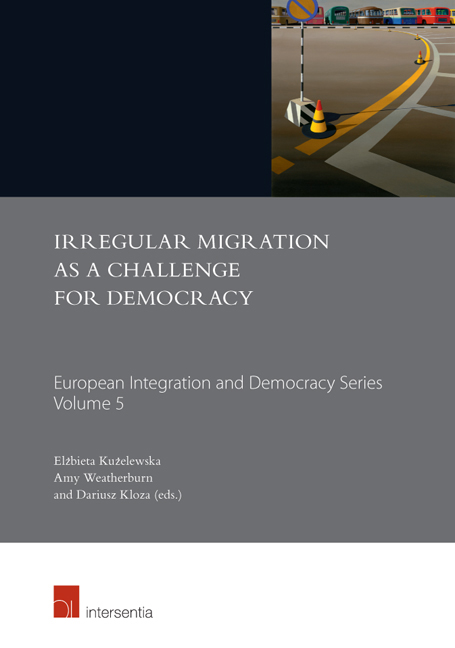Book contents
- Frontmatter
- Foreword
- Introduction
- Contents
- List of Abbreviations
- PART I The European Integration Project And Irregular Migration: Upholding Fundamental Values And Principles
- Part II Migrants, their Rights and the Limits Thereof
- Part III The Status Quo of Migration in Europe: Selected National Perspectives
Introduction
Published online by Cambridge University Press: 12 October 2018
- Frontmatter
- Foreword
- Introduction
- Contents
- List of Abbreviations
- PART I The European Integration Project And Irregular Migration: Upholding Fundamental Values And Principles
- Part II Migrants, their Rights and the Limits Thereof
- Part III The Status Quo of Migration in Europe: Selected National Perspectives
Summary
‘Would you tell me, please, which way I ought to go from here?’
‘That depends a good deal on where you want to get to,’ said the Cat.
‘I don't much care where –’ said Alice.
‘Then it doesn't matter which way you go,’ said the Cat.
‘– so long as I get somewhere,’ Alice added as an explanation.
‘Oh, you're sure to do that,’ said the Cat, ‘if you only walk long enough.’
Lewis Carroll,
Alice's Adventures in Wonderland (1865)
To what extent does the status quo of irregular migration to Europe pose a challenge for democracy? The surge of people moving, predominantly from war-torn, repressed and impoverished countries in the Middle East and Africa to the outer borders of Europe, which started in the early 2010s and which intensified in the summer of 2015 – and the implications for the Old Continent that this massive fiow of people has caused – gave an impetus to the present book. It seeks to contribute to the contextualisation, better understanding of and drawing of lessons from the status quo of irregular migration to Europe and its relation to the values and principles on which Europe has been built.
Migration in Europe (i.e. within, to and away from), as anywhere in the world, is by no means a novel phenomenon. Immigration to the Old Continent once again gained its momentum and – consequently – public attention in the aftermath of the so-called Arab Spring. A sequence of protests against authoritarian political regimes in Africa and the Middle East that broke out on 17 December 2010 in Tunisia resulted in democratisation for some of them, but in others led to political unrest and even civil war. The latter caused an intensified emigration therefrom, largely towards Europe. The Italian island of Lampedusa – located less than 120 km from the Tunisian shore – and the vessels that have sunk around that island have become symbolic. Lampedusa perhaps marked the first sign that this influx of people constituted a serious problem and hence people started naming it a ‘crisis’. Subsequent events only magnified the problem: perhaps the biggest mark has been left by the ongoing Syrian civil war.
- Type
- Chapter
- Information
- Irregular Migration as a Challenge for Democracy , pp. xiii - xlviiiPublisher: IntersentiaPrint publication year: 2018



